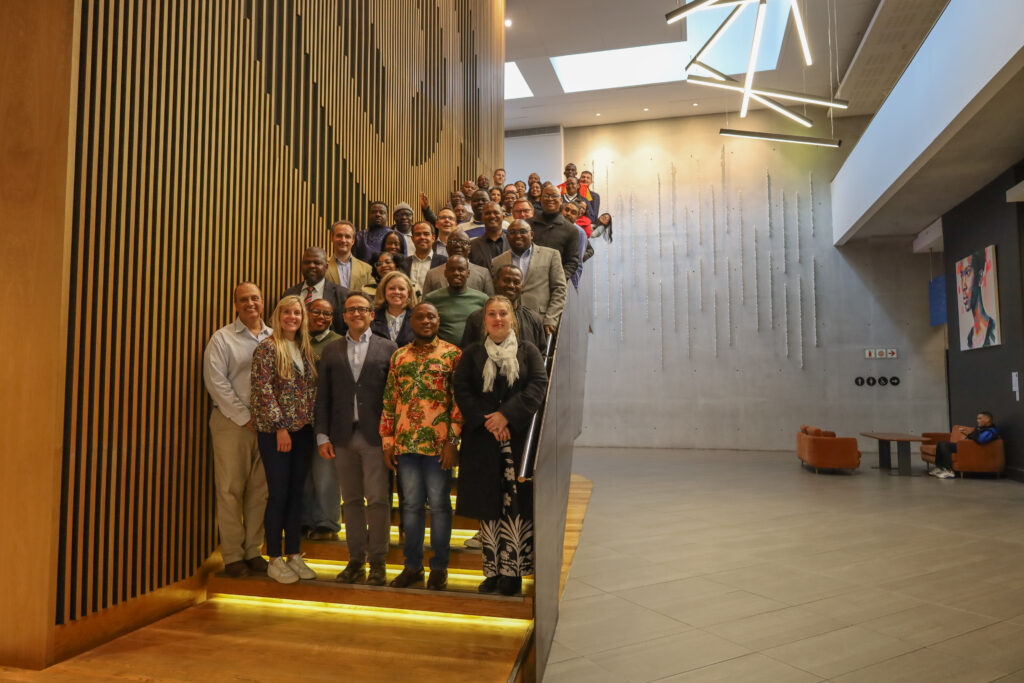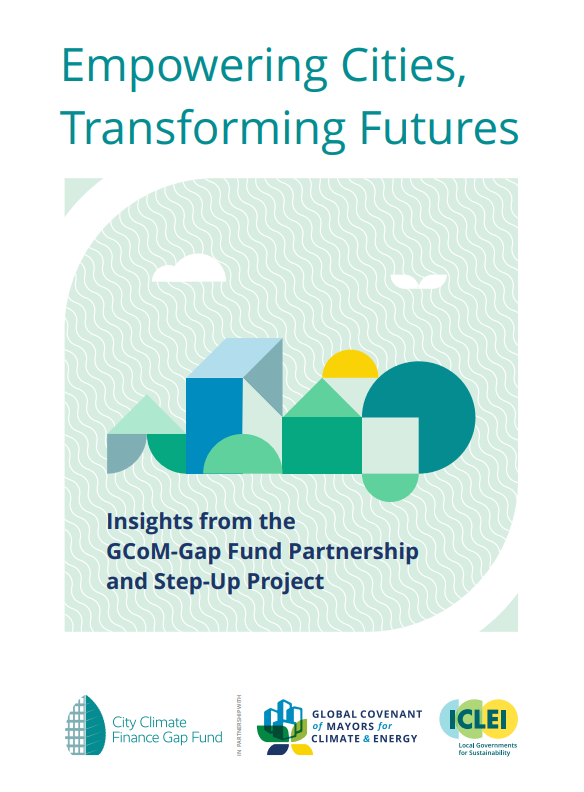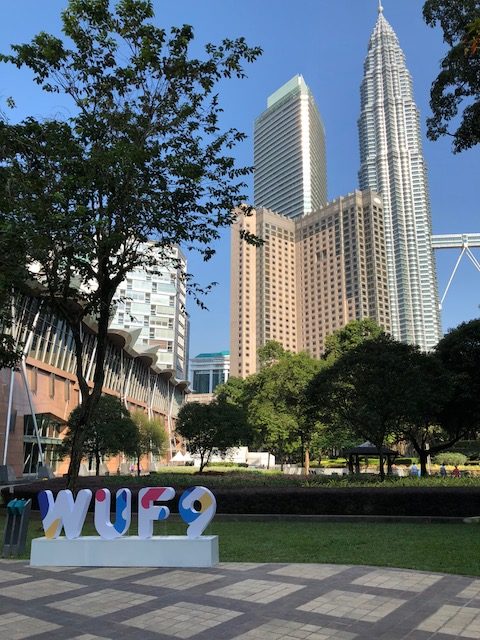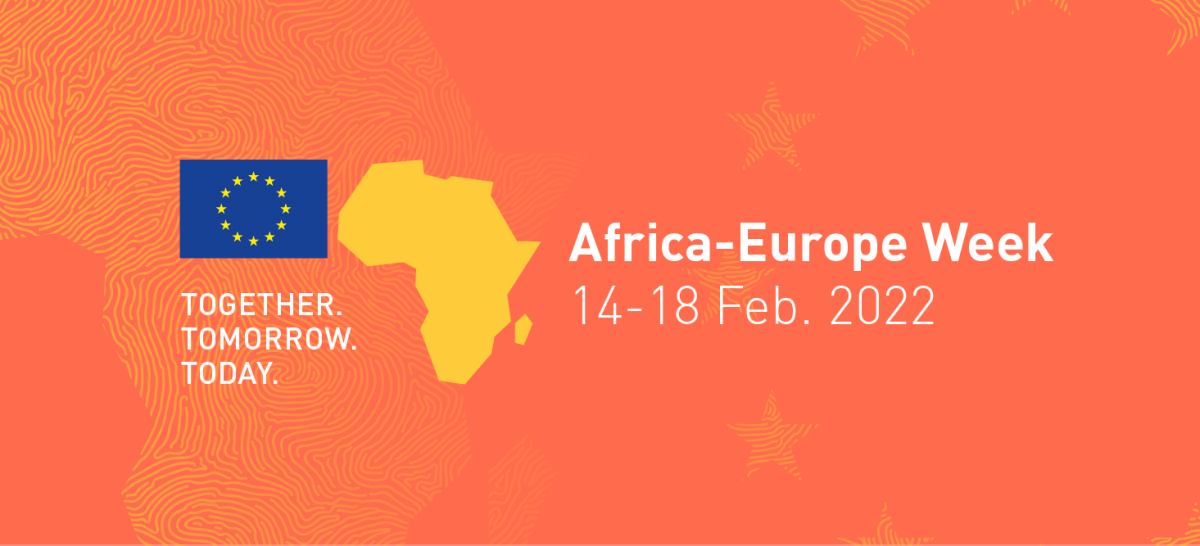Cape Town forum connects African cities with funding partners and technical expertise for climate action

June 3-5, 2025. Three-day event brings together 27 cities, 12 companies, and technical and financial partners to accelerate climate project development.
The Global Covenant of Mayors for Climate and Energy (GCoM) and the GCoM-Gap Fund partnership hosted the Regional Climate Action Project Implementation Forum in collaboration with the African Development Bank, the Covenant of Mayors in Sub-Saharan Africa, the South African Local Governments Association and ICLEI Africa. The three-day event in Cape Town, South Africa, brought together 27 African cities, 12 private companies, and technical and financial partners to accelerate the journey from ideas to climate action.
African success stories from the Gap Fund
During a dedicated session on project preparation, cities from across Africa shared their experiences with how the Gap Fund has enabled and supported their climate ambitions.
The representative from Kisumu (Kenya) explained how the Gap Fund’s technical assistance helped the city finalise its climate action plan and prioritise key climate initiatives, enabling them to move towards implementation.
Delegates from Makindye (Uganda) and Otjiwarongo (Namibia) presented innovative waste treatment and waste-to-energy solutions thanks to pre-feasibility studies supported by the Gap Fund. “Our recommendation to colleagues is to approach the Gap Fund. We are very happy with their technical support in refining our project,” said Petros Kuteeue, Manager of Economic Development at Otjiwarongo Municipality, Namibia.
The Director in charge of Renewable Energies at the Ministry of Energy in Gabon introduced their Gap Fund-supported programme to replace conventional streetlights with solar-powered and LED alternatives.
Finally, the Forum showcased Cape Town’s project to develop a climate-responsive masterplan to integrate flood management, pollution control and nature-based interventions.
From project ideas to investment-ready projects
In pitch sessions facilitated by GCoM’s Business Matchmaking Initiative, a diverse range of cities stretching from Basse (The Gambia) to Tshwane (South Africa), with representatives from cities like Bangui (Central African Republic) and Dodoma (Tanzania), presented their project concepts to an expert panel. Their concepts covered key climate-related sectors such as solid waste management, nature-based solutions, flood mitigation, and energy.
The feedback the cities received from the panel of businesses and funders, including the African Development Bank and the Development Bank of Southern Africa (DBSA), gave practical insights to help refine their ideas and improve their storytelling to attract funders and investors.
Beyond the pitches, the Forum created opportunities for peer learning and inspiration. City representatives connected with peers facing similar challenges, sharing successes and lessons learned.
Private sector partners brought innovation to the table, presenting down-to-earth technical solutions and implementation models tailored to urban climate resilience in Sub-Saharan Africa. Through dedicated one-on-one consultations with the private sector and financial partners, each city received personalised guidance to transform their initial ideas into more structured, fundable projects. The sessions also helped cities identify projects they could implement without external funding.
On a field visit to Cape Town (South Africa)’s Kraaifontein Integrated Waste Management Facility, participants gained hands-on insights into efficient waste operations. The visit challenged common assumptions about waste valorization profitability. Cape Town’s example demonstrated that the true value lies in cutting costs, creating jobs, and improving services. This led to meaningful discussions about realistic, impact-driven investment in urban waste systems.
The Cape Town Forum continues the success of GCoM’s Business Matchmaking initiative, which has already delivered pilot projects in Shimla (India) and Belize City (Belize).
Beyond the Forum
The Forum provided a timely opportunity to solidify the partnership with the South African Local Government Association (SALGA), in support of their national programme on climate project preparation. At the same time, valuable conversations took place with DBSA. A representative from the Bank, Kebu Phiri, explained, “We work at the feasibility stage, and that is why collaboration with the Gap Fund is crucial, to receive high-quality pre-feasibility studies for promising projects”. The next few weeks will see more specific collaboration plans put in place.
Cape Town reinforced strategic collaboration with other key regional partners, too. Discussions with the Urban Municipal Development Fund of the African Development Bank (AfDB) helped to identify co-financing opportunities for climate-related projects across Sub-Saharan Africa.
While the Forum has concluded, its impact on cities continues. Several projects that emerged from the event are now moving into concrete proposal development, with technical assistance from the GCoM-Gap Fund team to build robust climate proposals.

Cape Town forum connects African cities with funding partners and technical expertise for climate actionJune 17, 2025

Cape Town forum connects African cities with funding partners and technical expertise for climate actionJune 17, 2025
